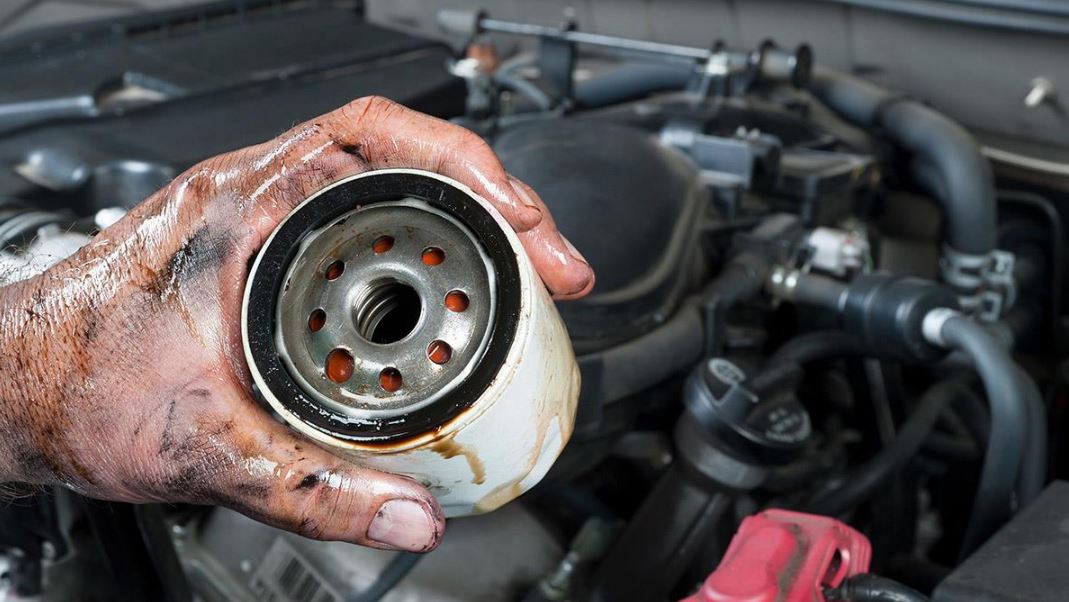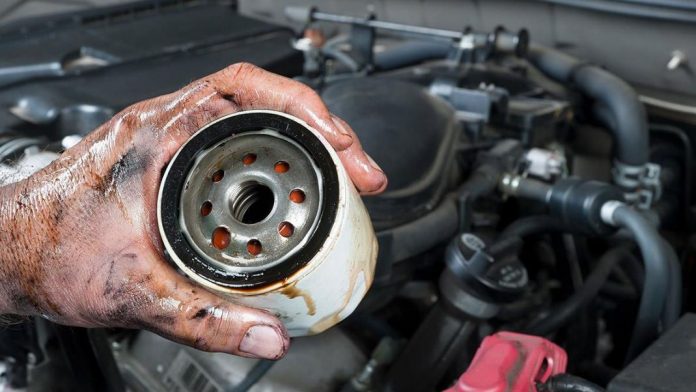For your engine to run smoothly, oil is necessary. And a key factor in ensuring that your oil can do this is your oil filter. By eliminating impurities (such as dirt, oxidized oil, metallic particles, etc.) that may build up in the motor oil as a result of engine wear, an oil filter shields your engine from possible harm.

Everyone who owns a car is aware that you need to change your oil frequently (typically every 3,000 or 6,000 miles, depending on your vehicle), but few people are even aware that your system also contains an oil filter that has to be replaced. To prevent clogging and fouling, this crucial component of your engine filters away dirt and grease.
Replacing your oil filter is typically a part of routine servicing, but what happens when your warranty expires and you’re trying to figure out what to do and when? When performing preventative maintenance, a lot of drivers worry about how frequently to change their oil filters.
Using premium synthetic oil can help your oil filter last longer and function more effectively. It will last longer and be less likely to clog your filter because synthetic motor oil is more refined and distilled than ordinary oil. Find out how frequently to change your oil filter based on your car’s make and model, dash lights, how you drive, and other situations in this article. Let’s get through it!
Check also: 10 Best Oil Filter for Synthetic Oil
When Should I Change My Oil Filter?
The frequency of oil filter changes depends on a variety of variables. Many manufacturers advise replacing the oil filter every other time you get your oil changed. Therefore, if your filter has 3,000 miles on it, you should replace it every 6,000 miles; if it has 6,000 miles (as with most new vehicles), you should replace it every 12,000 miles. Other considerations do, however, come into play, and some mechanics advise replacing parts more frequently.
-
Engine Service Light
A dirty oil filter can be the cause of your service engine light turning on while you’re driving. There are a number of potential causes for this light to turn on, so it is always a good idea to start by ruling out the easy and affordable possibilities. Replace the filter and check to see if the issue is resolved.
-
Nasty Driving
You may need to get your oil changed more regularly if you drive harshly often, such with hard braking and acceleration, stop-and-go driving in cities, or extensive travel in adverse weather. Your oil tends to grow dirty more rapidly when your engine has to work harder. Your oil filter clogs up more quickly as a result.
-
For Each Oil Change
In general, the majority of more recent automobiles are made to require an oil change every 6,000 to 7,500 miles (the old 3,000-mile cycle is a myth in terms of newer vehicles). The majority of mechanics concur that changing the filter every time you have your car’s oil changed is just a good idea. The cause of this is that modern engines—and, consequently, filters—are made to be exceedingly effective at removing particles, which causes the filters to clog more quickly.
-
Full-Flow Filtering Is A Technique
Full-flow filtration is used by modern engines, which means the oil travels directly from the reservoir to the engine via the filter. This implies that the first line of defence against contamination for your engine is your oil filter.
-
Minimizing Engine Wear
Your oil filter will become contaminated over time. There is a potential that the passage of oil will be blocked, stopping the flow of filtered oil to your engine if you wait until your filter is entirely clogged. Fortunately, the majority of oil filters are made to guard against catastrophic engine failures caused by insufficient lubrication in the event of a clogged oil filter. Unfortunately, the bypass valve enables contaminations and oil to travel through the filter without being stopped by it. While this indicates that your engine is greased, the airborne contaminants will cause accelerated wear and tear.
-
Lowering The Cost Of Maintenance
By only needing one repair, you can save your overall maintenance expenditures by coordinating the frequency of your oil change and oil filter replacement. When compared to the cost of the potential harm that pollutants in your engine could do, a new oil filter is not prohibitively expensive.
-
Avoid Getting Your Fresh Oil Dirty
It is feasible to merely change your oil and leave your old oil filter in place. The clean oil will nevertheless need to pass through the soiled, outdated filter. And the moment you turn on your engine, your formerly clean engine will swiftly turn into something just as filthy as the oil you just drained.
Signs That Your Oil Needs To Be Changed More Frequently Than Usual
Your car may occasionally send you a warning that your oil filter needs to be changed more frequently than usual. These indicators include:
-
Service Engine Warning Light On
Numerous factors may cause your service engine light to illuminate, but it always signals that your engine isn’t performing as effectively as it should. This frequently indicates that your engine is moving a lot more dirt and debris than usual, which could cause your oil filter to clog more quickly than usual. Before spending a lot of money on diagnostics and repairs, it is best to rule out simpler (and less expensive) alternatives. Some more recent vehicles additionally include a lubricating oil warning light or an oil change indicator light.
-
Applied Oil (Synthetic Oil Or Conventional Oil)
The type of oil you use also has an impact on how frequently you should replace your oil filter. Regular oil (conventional oil), synthetic oil, or a combination of the two may be what you’re using. Because synthetic oil performs better and lasts longer than regular oil, it is superior. Most likely, if your car is more recent, you already use synthetic oil. However, you can always switch to synthetic motor oil if you have an older car that uses normal oil.
The Final Thought
It is obvious that the answer to the question “how often to change oil filters” is not as simple as it first appears. After all, there are numerous things to take into account. Nevertheless, it’s crucial to replace this part at the same time as your normal oil change.
Keep in mind that the oil filter is a crucial component of your car’s engine operations because it cleans the oil of dirt and filth. The best part is that oil filters are reasonably priced, allowing you to save your automobile from experiencing engine wear—expensive damage in the future. However, you can consider all the above factors that give significant signs that your oil filter needs to be changed. This would not only allow smooth functioning of your vehicle but also save you from considerable damage costing.





































